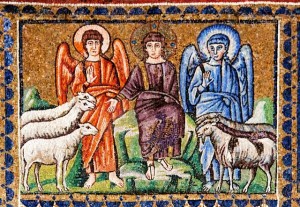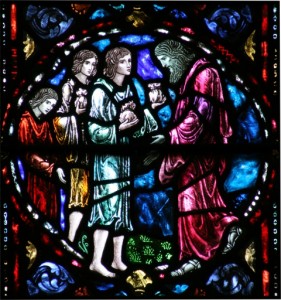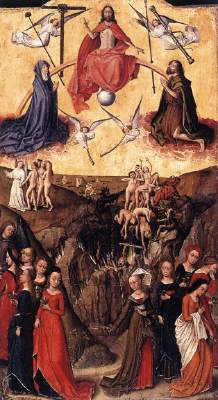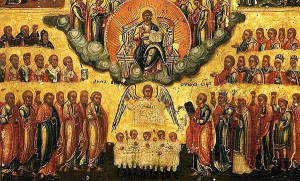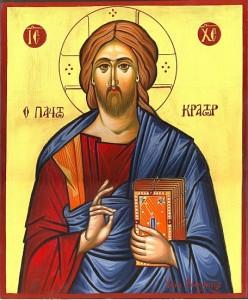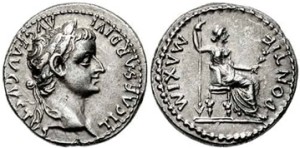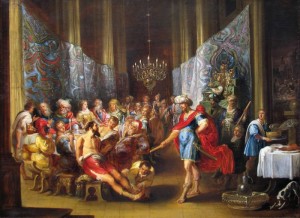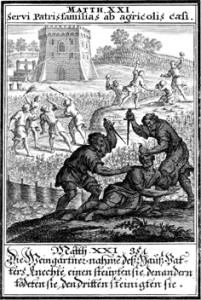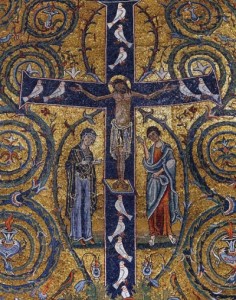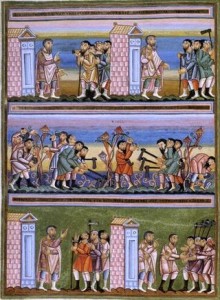Thoughts on Today’s Lessons for Nov. 23, 2014
First Reading: Ezekiel 34:11-16, 20-24The long Pentecost season ends today, a festival day long known as Christ the King. For many of us, the idea of kingship may seem an echo of old times. But today’s readings suggest that Jesus Christ is a different kind of king, not a traditional patriarch but a loving shepherd. Ezekiel’s prophecy spoke to Israel in exile, praying for a new King David in a new Jerusalem where those who have suffered will be restored. For Christians, it’s hard not to look back and see Jesus reflected in these ancient verses, understanding Jesus as the perfect image of God in human form.
Psalm: Psalm 100
This joyous hymn, which Episcopalians may recognize as the Jubilate in Morning Prayer, carries out the image of God’s people as the protected sheep of God’s pasture, joyously singing thanksgiving and praise.
Psalm (Track 2): Psalm 95:1-7a
This joyous hymn, which Episcopalians may recognize as the Venite in Morning Prayer, carries out the image of God as king and shepherd. We are the protected sheep of God’s hand, joyously singing thanksgiving and praise.
Second Reading: Ephesians 1:15-23
After spending a few weeks with 1 Thessalonians, perhaps the earliest of Paul’s letters, we now turn to Ephesians, a later epistle most likely written by a first century Christian a generation after Paul’s death. Perhaps working out the early church’s growing understanding of Christ, the author declares that God the creator has placed the resurrected Jesus at God’s right hand and given him authority over all things in heaven and in the church, his body on earth.
Gospel: Matthew 25:31-46
Matthew now concludes his series of parables on the kingdom of heaven with this familiar reading. Recognizing the face of Jesus in the face of a hungry, thirsty, homeless person, sick and naked and oppressed, isn’t always easy, but Matthew leaves us in no doubt that this is the way to make God’s kingdom happen. Then Matthew turns from loving our hungry neighbor to warning that those who fail to do so will earn eternal punishment. This is a hard teaching. Do you think that Matthew is saying that, once we know what Jesus asks of us, we ignore his call at our peril? But remember, too, that the one who judges us is the one who loves us the most.

